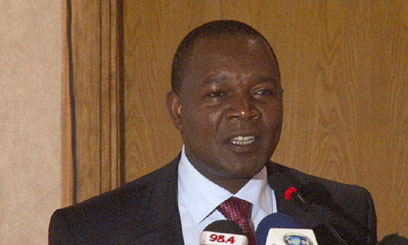NAIROBI, Kenya, Nov 1- In yet another shocking move, the Central Bank of Kenya (CBK) has hiked the base lending rate by a whopping 5.5 percent to 16.5 percent.
The ‘decisive policy tightening’ came barely a month after another 400 basis points increase to 11 percent in the Central Bank Rate as CBK struggles to tame the runaway inflation and weak shilling.
On the upside, the move, which the market is likely to interpret as a signal that the Central Bank is serious about tackling the inflation should help rein in the depreciating shilling and restore confidence in the markets.
“The MPC (Monetary Policy Committee) Market Perceptions Survey conducted in October 2011 showed that the private sector continues to expect high inflation to persist over the remainder of the year. Going forward, monetary policy has to reverse these expectations through further tightening that will bring inflation and inflationary expectations under control and stabilise the exchange rate to protect the economic growth base,” CBK Governor Prof Njuguna Ndung’u said.
However, the hike effectively means that commercial banks are likely to raise their interest rates to more than 20 percent as they seek to protect their profit margins.
Should this happen, independent market analyst Aly-Khan Satchu is predicting that the number of borrowers who will default on their loans will rise significantly.
In addition the amount of loans extended to the private sector will also decline significantly, a scenario which will in the long term definitely impact the economy.
The availability of too much credit to the private sector has been one of the factors that have been driving the double digit inflation which is currently at 18.9 percent.
However, the Monetary Policy Committee seems to have taken the International Monetary Fund’s advice by moving to mop up the liquidity in the market.
To do this, the committee raised the Cash Reserve Ratio, which is the amount of money that a bank must hold by 50 basis points to 5.25 percent; a move that translates to less money for banks to loan out.
Banks have been given until the December 15 of next month to comply with the new requirement and ‘adjust’.
While the market might receive this news positively, questions are likely to be raised as to whether the ‘signal’ was taken to appease the IMF which has pledged to extend Sh25 billion to shore up the country’s foreign exchange reserves.



































